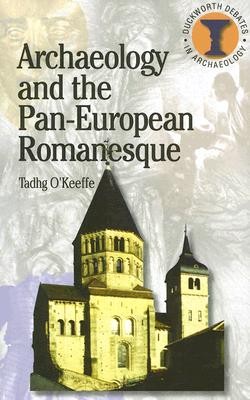
- We will send in 10–14 business days.
- Author: T O'Keefe
- Publisher: Bristol Classical Press
- ISBN-10: 0715634348
- ISBN-13: 9780715634349
- Format: 18.3 x 21.4 x 1 cm, softcover
- Language: English
- SAVE -10% with code: EXTRA
Reviews
Description
Romanesque is the style name given to the art and architecture of Europe in the eleventh and twelfth centuries. First used in the early nineteenth century to express the perceived indebtedness of the visual-artistic and architectural cultures of this period to their Classical antecedents, the term has survived two centuries of increasingly sophisticated readings of the relevant medieval buildings and objet d'art. The study of Romanesque as a stylistic phenomenon is now almost exclusively the preserve of art historians, particularly in the English-speaking world. Here 'the Romanesque' is subjected to a long overdue, theoretically-informed, archaeological inquiry. The ideological foundations and epistemological boundaries of Romanesque scholarship are critiqued, and the constructs of 'Romanesque' and 'Europe' are deconstructed, and alternative strategies for interpreting Romanesque's constituent material are mapped out. This book should, at the very least, illuminate the need for debate.
EXTRA 10 % discount with code: EXTRA
The promotion ends in 20d.17:55:57
The discount code is valid when purchasing from 10 €. Discounts do not stack.
- Author: T O'Keefe
- Publisher: Bristol Classical Press
- ISBN-10: 0715634348
- ISBN-13: 9780715634349
- Format: 18.3 x 21.4 x 1 cm, softcover
- Language: English English
Romanesque is the style name given to the art and architecture of Europe in the eleventh and twelfth centuries. First used in the early nineteenth century to express the perceived indebtedness of the visual-artistic and architectural cultures of this period to their Classical antecedents, the term has survived two centuries of increasingly sophisticated readings of the relevant medieval buildings and objet d'art. The study of Romanesque as a stylistic phenomenon is now almost exclusively the preserve of art historians, particularly in the English-speaking world. Here 'the Romanesque' is subjected to a long overdue, theoretically-informed, archaeological inquiry. The ideological foundations and epistemological boundaries of Romanesque scholarship are critiqued, and the constructs of 'Romanesque' and 'Europe' are deconstructed, and alternative strategies for interpreting Romanesque's constituent material are mapped out. This book should, at the very least, illuminate the need for debate.


Reviews